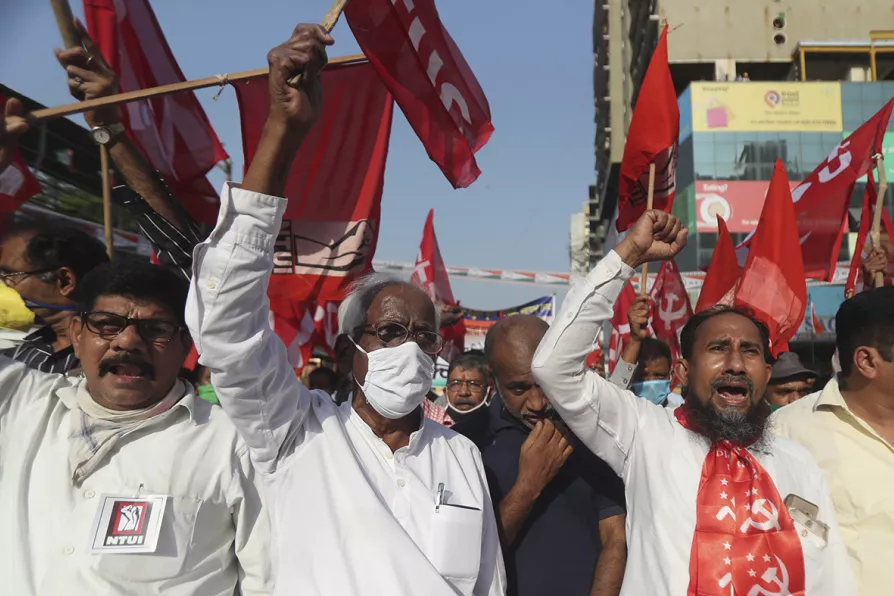Does widespread and uncontrolled use of AI change our relationship with scientific meaning? Or with each other? ask ROX MIDDLETON, LIAM SHAW and MIRIAM GAUNTLETT

 Farmers and their supporters protest against new farm laws in Mumbai
Farmers and their supporters protest against new farm laws in Mumbai
IN THE darkness of night, the Hindutva fascists and their trained henchmen are trying to attack Indian farmers’ protests and provoke violence with the help of police.
The objective of the BJP government is to discredit the Indian farmers’ peaceful and democratic movements.
All slanderous campaigns by the ruling classes against the farmers’ movements have failed.

Modi has rolled out the carpet for the Taliban in New Delhi — and we shouldn’t be surprised. They have more in common than you might think, argues Bhabani Shankar Nayak

Following the resignation of Nepali Prime Minister KP Oli amid mass youth-driven protests, different narratives have circulated which simplify and misrepresent the complexities and reality on the ground in Nepal at the roots of this crisis, argue VIJAY PRASHAD and ATUL CHANDRA











